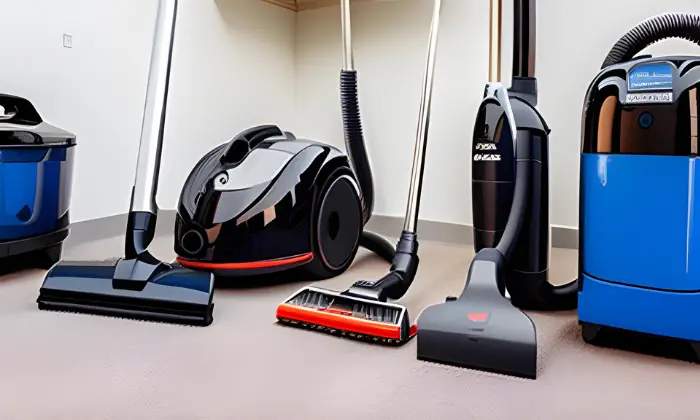
A vacuum cleaner is a household essential that helps keep our homes clean and free of dust, dirt, and allergens. With many types of vacuum cleaners, deciding which suits your needs can be challenging. This article/blog will discuss the different kinds of vacuum cleaners, their advantages and disadvantages, & how to choose the right one for you. So, let’s dive in!
Upright Vacuum Cleaners

Upright vacuum cleaners are among the most popular types in many households. They stand upright, and the user pushes the unit along the floor to clean.
Advantages of Upright Vacuum Cleaners
- Excellent for deep cleaning carpets
- Wide cleaning path for quicker cleaning
- Many models come with attachments for versatile cleaning
Disadvantages of Upright Vacuum Cleaners
- It can be heavy and difficult to manoeuvre
- Not ideal for cleaning stairs
- It may not work well on hard floors
Canister Vacuum Cleaners
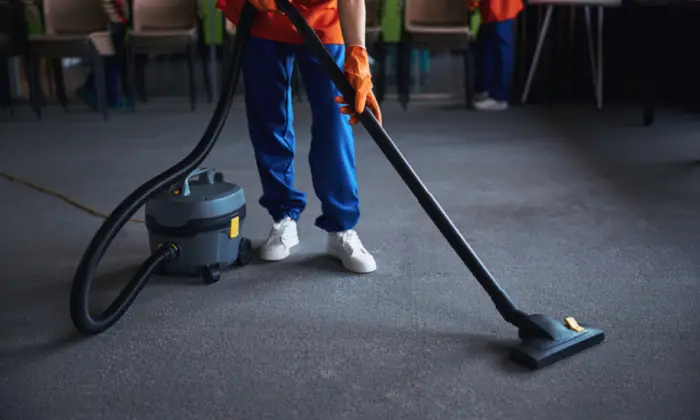
Canister vacuum cleaners have a separate motor and dust collector unit connected to a cleaning head by a flexible hose. They are known for their versatility and strong suction.
Advantages of Canister Vacuum Cleaners
- Powerful suction for deep cleaning
- Works well on both carpets and hard floors
- Easier to manoeuvre around furniture and tight spaces
Disadvantages of Canister Vacuum Cleaners
- It can be bulky and more challenging to store
- Not as easy to use on stairs
- It may require more frequent filter maintenance
Stick Vacuum Cleaners

Stick vacuum cleaners are lightweight and slim, making them popular for quick cleanups and smaller living spaces.
Advantages of Stick Vacuum Cleaners
- Lightweight and easy to manoeuvre
- Ideal for quick cleanups and spot cleaning
- Many models are cordless for added convenience
Disadvantages of Stick Vacuum Cleaners
- Less powerful suction compared to other types
- Smaller dustbin capacity
- Shorter battery life on cordless models
Handheld Vacuum Cleaners
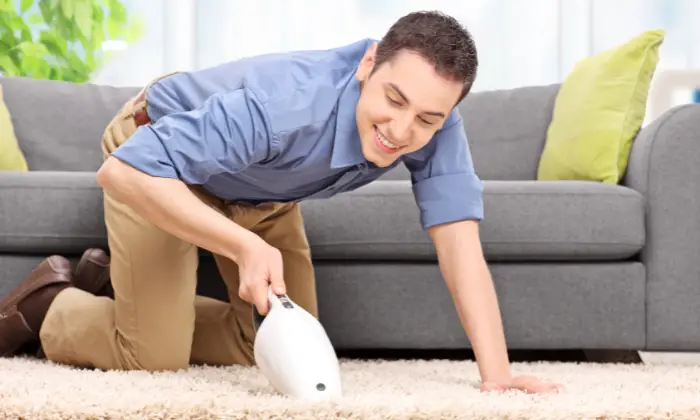
Handheld vacuum cleaners are compact, portable devices for spot cleaning and reaching tight spaces.
Advantages of Handheld Vacuum Cleaners
- Highly portable and easy to store
- Terrific for spot cleaning and small messes
- Ideal for cleaning upholstery, car interiors, and stairs
Disadvantages of Handheld Vacuum Cleaners
- Limited battery life and suction power compared to larger models
- Not suitable for cleaning large areas or entire rooms
- Small dustbin capacity requires frequent emptying
Robot Vacuum Cleaners
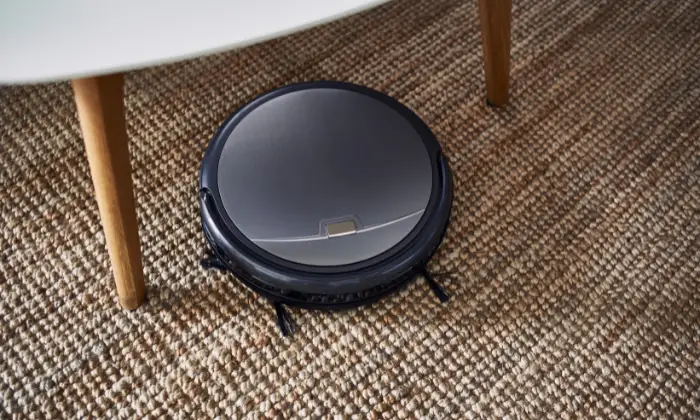
Robot vacuum cleaners are autonomous devices that navigate your home and clean floors without human intervention.
Advantages of Robot Vacuum Cleaners
- Hands-free, automated cleaning
- Can clean under furniture and in tight spaces
- Can be scheduled to clean at different times
Disadvantages of Robot Vacuum Cleaners
- Less effective on thick carpets or rugs
- It may require regular maintenance for optimal performance
- It can be expensive compared to other types of vacuum cleaners
Central Vacuum Systems

Central vacuum systems are built-in cleaning systems with a significant power unit and multiple inlets installed throughout the home.
Advantages of Central Vacuum Systems
- Powerful suction for deep cleaning
- Quieter operation compared to portable vacuum cleaners
- Convenient and easy to use with no need to carry a unit around
Disadvantages of Central Vacuum Systems
- Expensive to install and maintain
- Not suitable for apartments or tiny homes
- Limited to the areas with installed inlets
Wet/Dry Vacuum Cleaners
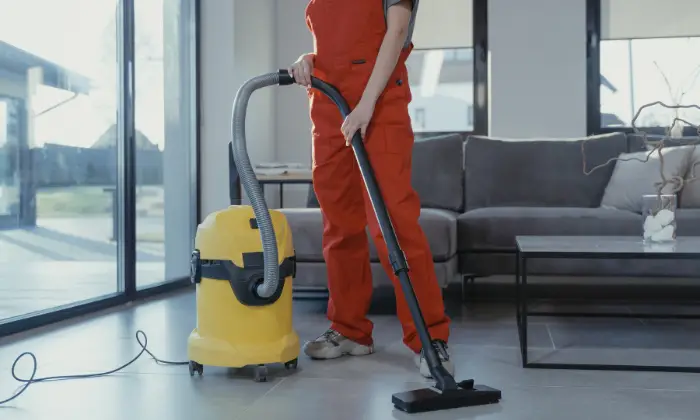
Wet/dry vacuum cleaners, or shop vacuums, are designed to clean up dry debris and liquid spills.
Advantages of Wet/Dry Vacuum Cleaners
- Can handle both dry and wet messes
- Typically more durable and built for heavy-duty use
- Great for workshops, garages, and outdoor cleaning
Disadvantages of Wet/Dry Vacuum Cleaners
- It can be bulky and difficult to store
- Not ideal for everyday household cleaning
- It may be louder than other vacuum cleaner types
How to Choose the Perfect Vacuum Cleaner for Your Needs
When selecting a vacuum cleaner, consider the following factors:
- The size of your living space
- Types of Flooring in your home
- Specific cleaning needs, such as pet hair or allergies
- Your budget
- The level of maintenance required
You can choose the best vacuum cleaner type that meets your unique requirements by evaluating these factors.
FAQs
- What are the four common uses of vacuum cleaners?
Vacuum cleaners are versatile devices that can be used for a variety of tasks, including:
- Removing dirt and dust from carpets, hardwood floors, and laminate flooring
- Cleaning upholstery and velveteen furniture
- Vacuuming stairs and tight spaces
- Cleaning car interiors and other hard-to-reach areas
- What is vacuum classification?
Vacuum classification refers to the division of vacuum levels according to international standards. These classifications help differentiate the performance and capabilities of vacuum systems.
Vacuum levels are typically divided into four categories: low vacuum, medium vacuum, high vacuum, and ultra-high vacuum.
- How many types of vacuum cleaners are there?
Several types of vacuum cleaners are available on the market, each designed for specific cleaning tasks and preferences. Some common types include upright, canister, stick, handheld, robot, central vacuum systems, and wet/dry vacuum cleaners.
Conclusion
With many types of vacuum cleaners available, it’s essential to understand the advantages & disadvantages of each to make an informed decision. There’s a vacuum cleaner for everyone, from upright and canister models to handheld and robot vacuums.
Consider your specific needs and preferences to select the perfect vacuum cleaner for your home.
Feel Free To Follow us In Linkedin: House Stopper: Company Page




